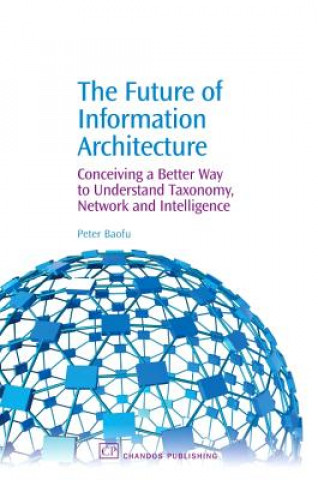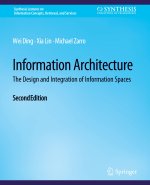
Delivery
Shopping guide





Doesn't suit? No problem! You can return within 30 days
 Gift voucher
any value
Gift voucher
any value
You won't go wrong with a gift voucher. The gift recipient can choose anything from our offer.
Future of Information Architecture
 English
English
 172 b
172 b
 Delivery to Austria
Delivery to Austria
30-day return policy
You might also be interested in


The Future of Information Architecture examines issues surrounding why information is processed, stored and applied in the way that it has, since time immemorial. Contrary to the conventional wisdom held by many scholars in human history, the recurrent debate on the explanation of the most basic categories of information (eg space, time causation, quality, quantity) has been misconstrued, to the effect that there exists some deeper categories and principles behind these categories of information - with enormous implications for our understanding of reality in general. To understand this, the book is organised in to four main parts: Part I begins with the vital question concerning the role of information within the context of the larger theoretical debate in the literature. Part II provides a critical examination of the nature of data taxonomy from the main perspectives of culture, society, nature and the mind. Part III constructively invesitgates the world of information network from the main perspectives of culture, society, nature and the mind. Part IV proposes six main theses in the authors synthetic theory of information architecture, namely, (a) the first thesis on the simpleness-complicatedness principle, (b) the second thesis on the exactness-vagueness principle (c) the third thesis on the slowness-quickness principle (d) the fourth thesis on the order-chaos principle, (e) the fifth thesis on the symmetry-asymmetry principle, and (f) the sixth thesis on the post-human stage.
About the book
 English
English
Categories


 Contact
Contact How to shop
How to shop
































